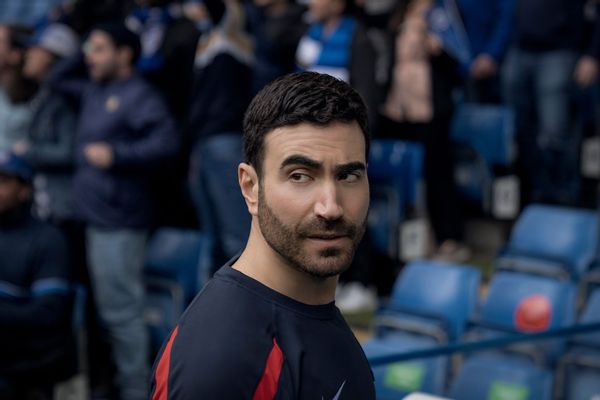
When I was a child, my family loved watching "Valerie," an NBC sitcom starring Valerie Harper as a mom dealing with her job, three sons and their busy, absent dad. Described by Harper in an early trailer as "the most fun you can have with your TV on," the story quickly went through some revisions (and title changes, becoming "Valerie's Family: The Hogans" and "The Hogan Family") after Harper was fired following Season 2. In the show, her character dies. Sandy Duncan, of "Peter Pan" fame, replaced her as Valerie's sister-in-law and the aunt of the boys (including a young Jason Bateman) and we kept watching. For four more seasons.
Stars leave. Shows change. While some leads may like to believe they're the reason for the show, that's often not the case. Or, the reason changes. Did we watch "Angel," the "Buffy" spin-off, even though it didn't have the blond slayer herself, except for a very brief guest appearance? Yes. Did we watch "The L Word" and "The L Word: Generation Q" even after best character ever, you-love-to-hate-her Jenny was weirdly murdered? Yes. Would I have watched the rumored spinoff, which never came to fruition, of a character in prison for the crime? Absolutely.
One of the joys of shows is their universe, an extended web of interesting people. Often the most compelling characters aren't the leads at all.
Are we in the locker room? Are spirits low? Time for an extended metaphor about Ted's southern youth.
"Ted Lasso" has given us a stadium's worth of examples of this, from generous and glamorous boss Rebecca (Hannah Waddingham) to Jeremy Swift as hidden gem Higgins to cool and likable Trent Crimm (James Lance), formerly of The Independent. As characters go, Jason Sudeikis' Ted reels us in, but Rebecca, Higgins, Trent and so many others keep us there watching, including fan favorite Brett Goldstein as Roy Kent, the role he was born to play (and the role he wrote himself, to play).
Rumors have been swirling about the Apply TV + hit, that this third season will be the last one for the show, which Vanity Fair characterizes as "mixed messages about Ted Lasso's (possible!) final quarter." But if it's not the end? It's time to switch captains. Make it Roy Kent's show, you cowards.
The disadvantage of a big cast, including an entire soccer team of characters who have started to have more distinct traits and backstories as the seasons wear on, is that it's hard to cover everyone thoroughly. This season, "Ted Lasso" has fumbled some major storylines, particularly when it comes to LGBTQ+ characters, taking a heavy-handed and outdated approach. Is Trent going to out gay footballer Colin Hughes (Billy Harris)? No, he's just following him for multiple episodes to tell the athlete he's gay too. Is team captain Isaac McAdoo (Kola Bokinni) homophobic? No, he's just really angry at Colin for not trusting him with his identity. It feels very broad, the storylines played for the back of the house, where no one knows any gay people, apparently. Will it play in Peoria? "Ted Lasso" asks itself.
That's power, respect — and confidence — when merely saying "whistle" makes them pay attention.
One of the storylines that has gotten stale is that of Ted himself. This season, which started out with a lot of losses for the Richmond greyhounds, Higgins and Rebecca even started to wonder if they might need to consider replacing Ted. That is, until he magically turned things around by switching the team to Total Football, a system which the serious soccer players in my life say would take some time to learn successfully (and require peak fitness). But on the show, Ted has outstayed his welcome. His folksy speeches have become predictable, both in timing and content. Are we in the locker room? Are spirits low? Time for an extended metaphor about Ted's southern youth.
In the episode "La Locker Room Aux Folles," Ted takes a backseat to Roy. The former football star turned reluctant coach (and even more reluctantly and briefly, color commentator) has grown into his increased duties, both official and unofficial. He's good at coaching. The players listen to him, even though he literally does not have a whistle. That's power, respect — and confidence — when merely saying "whistle" makes them pay attention.

Roy has the potential for more. There's a lot we don't yet know about this foul-mouthed footballer.
Roy also has a better story arc than Ted's. Although Ted started the series as a compelling character, with sympathetic history it took time to unravel about his father's death, his story has become stagnant. The departure of his therapist (Sarah Niles) seems to have halted his growth, and his hang-up about his ex-wife moving on is troubling, bordering on toxic. It doesn't keep the audience on his side. There have been no real love interests introduced for Ted, since Sassy (Ellie Taylor) said their fling was not viable, no one to challenge him or move him more than an inch. Everything works out for him, including (Instant)Total Football. His character has not changed in a season.

Roy also has the potential for more. There's a lot we don't yet know about this foul-mouthed footballer. Once viewed as the league's best player, injury ended his pro-athlete career, an injury he still continues to deal with: unable to run and sometimes limping. We don't know much about his family, and there might be something there, as fathers and patriarchal pressure have been such a part of multiple characters' lives, from Jamie to Nate (Nick Mohammed). The show is leading us — rather, shoving us — to believe Roy and Keeley are destined to get together again, which hopefully would mean opportunities to show Roy at home, and Roy being a pretty excellent and devoted uncle to fiery young Phoebe.
By keeping its main character the same, "Ted Lasso" misses out on some huge opportunities to create trouble in its players' lives — and higher stakes for the viewers. What if Total Football hadn't been a near-overnight success? Or, what if Ted had decided to go back to America and his see his son more, and try to balance travel, home and work? Or, what if he actually was fired? Would that be so bad?
As Ted has fallen back, Roy has risen. The King is dead, long live the king. Would we watch a show re-titled and re-branded "Roy Kent"? Whistle! We certainly would.







